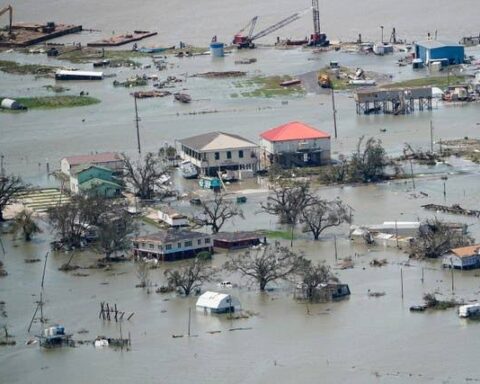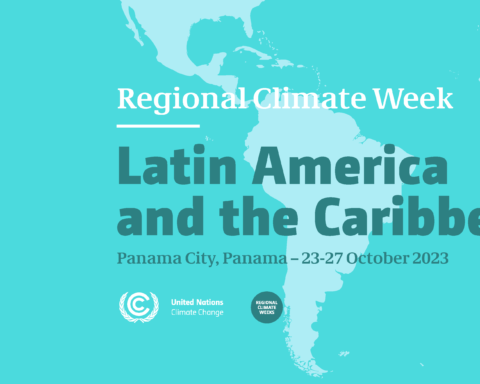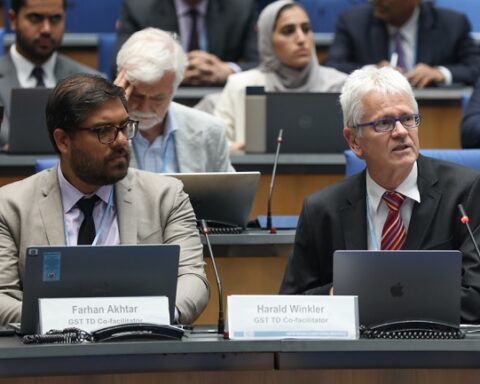A new report from UN Climate Change reveals that national climate action plans remain insufficient to limit global temperature rise to 1.5 degrees Celsius and meet the goals of the Paris Agreement.
Even with increased efforts by some countries, the report shows much more action is needed now to bend the world’s emissions trajectory further downward and avoid the worst impacts of climate change.
In order to achieve peaking of emissions before 2030, the report says, “the conditional elements of the NDCs need to be implemented, which depends mostly on access to enhanced financial resources, technology transfer and technical cooperation, and capacity-building support; as well as the availability of market-based mechanisms.
The Executive-Secretary of UN Climate Change, Simon Stiell said the report shows that governments combined are taking baby steps to avert the climate crisis.
” This report shows why governments must make bold strides forward at COP28 in Dubai, to get on track,”
“COP28 must be a clear turning point. Governments must not only agree what stronger climate actions will be taken but also start showing exactly how to deliver them,” he said.
Stiell stressed that the conclusion of the first global stocktake at COP28 is where nations can regain momentum to scale up their efforts across all areas and get on track with meeting the goals of the Paris Agreement.
The stocktake is intended to inform the next round of climate action plans under the Paris Agreement (known as nationally determined contributions, or ‘NDCs’) to be put forward by 2025, paving the way for accelerated action.
“The Global Stocktake report released by UN Climate Change this year clearly shows where progress is too slow. But it also lays out the vast array of tools and solutions put forward by countries. Billions of people expect to see their governments pick up this toolbox and put it to work,” Stiell said.
Speaking on the report COP28 President Designate Dr. Sultan Al Jaber, said the synthesis report of national climate plans underscores the need for countries to act with greater ambition and urgency to meet the goals of the Paris Agreement.
“There is simply no time left for delays,
COP28 must be a historic turning point in this critical decade for Parties to seize the moment of the Global Stocktake to commit to raise their ambition and to unite, act and deliver outcomes that keep 1.5C within reach, while leaving no one behind,” he said.
The latest science from the UN’s Intergovernmental Panel on Climate Change indicates that greenhouse gas emissions need to be cut 43% by 2030, compared to 2019 levels.
This is critical to limit temperature rise to 1.5 degrees Celsius by the end of this century and avoid the worst impacts of climate change, including more frequent and severe droughts, heat waves and rainfall.
UN Climate Change analyzed the NDCs of 195 Parties to the Paris Agreement, including 20 new or updated NDCs submitted up until 25 September 2023.
In line with the findings from last year’s analysis, today’s report shows that while emissions are no longer increasing after 2030, compared to 2019 levels, they are still not demonstrating the rapid downward trend science says is necessary this decade.
If the latest available NDCs are implemented, current commitments will increase emissions by about 8.8%, compared to 2010 levels. This is a marginal improvement over last year’s assessment, which found countries were on a path to increase emissions 10.6% by 2030, compared to 2010 levels.
By 2030 emissions are projected to be 2% below 2019 levels, highlighting that peaking of global emissions will occur within this decade.
Long-term low-emission development strategies
A second UN Climate Change report on long-term low-emission development strategies, also released today, looked at countries’ plans to transition to net-zero emissions by or around mid-century. The report indicated that these countries’ greenhouse gas emissions could be roughly 63% per cent lower in 2050 than in 2019, if all the long-term strategies are fully implemented on time.
Current long-term strategies (representing 75 Parties to the Paris Agreement) account for 87% of the world’s GDP, 68% of global population in 2019, and around 77% of global greenhouse gas emissions in 2019. This is a strong signal that the world is starting to aim for net-zero emissions.
The report notes, however, that many net-zero targets remain uncertain and postpone into the future critical action that needs to take place now.








